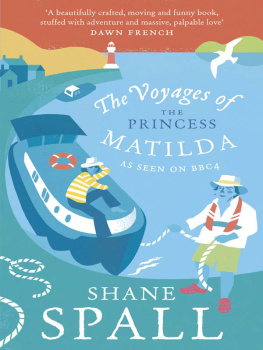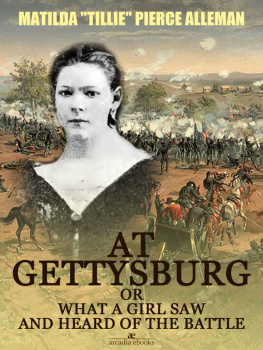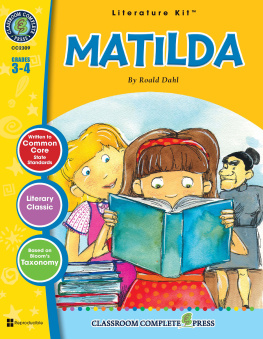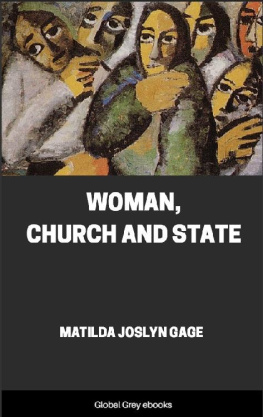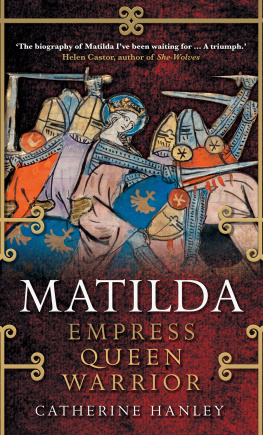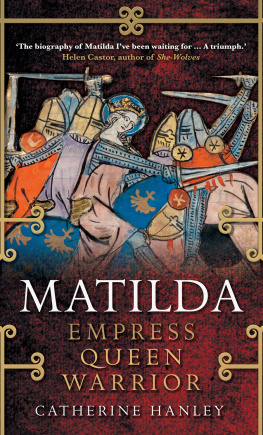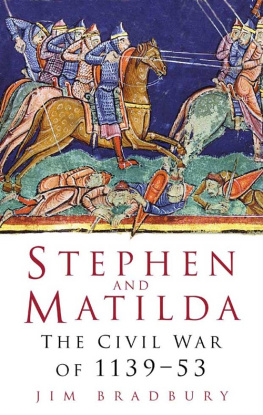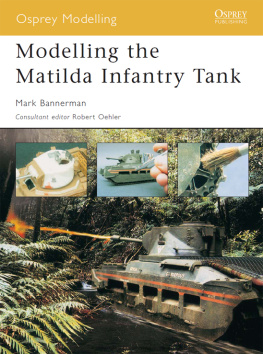Contents
About the Author
SHANE SPALL is from a large Midlands family. Her mother called her Number Five and her father after a character in a Western, played by Alan Ladd.
As a teenager in the 70s she worked in a Quaker hotel in Birmingham and on her day off would sit in New Street station and wonder where everyone was going. She now knows they were mostly going to work or coming home. The day that the young actor Timothy Spall arrived at New Street in 1981 she was in a council flat a few miles away. They could have been ships that had passed in the night but he sought her out because he had fallen passionately in love with her when he had accidentally touched her arm one evening. The young actor now gets to play parts called old man but is considered to be a national treasure. Hes a bit of a show off, but his wife doesnt mind, she keeps his feet on the ground. They have three children and used to have a bulldog that couldnt swim and a goldfish but they fostered it out as it got lonely staying home on its own.
About the Book
Tim and I both understood we had done something really stupid. We had underestimated the danger involved in going out to sea. We had no radio, compass, life raft or flares. In other words, we were a couple of idiots.
This is the story of Shane and Timothy Spall and their Dutch barge The Princess Matilda. After a summer on the Thames they head out to sea with only a road atlas and a vast amount of ignorance and it is absolutely terrifying!
On their travels, memories are triggered of childhood trips to the seaside, but also of more recent times. A decade before, Tim had been diagnosed with acute leukaemia and was given only days to live. Shocked at how life can pass you by, they decided that when, and if, Tim got better, they would buy a boat.
As Tim and Shane explore the coast from Medway to Cornwall, eventually they start to wonder, could they make it out of England altogether? Could they make it to Wales?!
For the boy Tim who phoned me from the Holiday Inn, and our extraordinary children, Pascale, Rafie and Sadie.
And Dr Jonny Gaynor, Professor Tony Goldstone, Dr Panos Kottardis and the Haematology Department at University College London Hospital.
Introduction
A gale is blowing as I look out of the porthole and our ropes all groan in protest. The wind blows one way and a fast current pushes The Princess Matilda the other. It is springtime but so cold and I have asked Tim to fill the coal bucket once he has finished checking our mooring lines. With this noreasterly blowing I am tempted to light the fire in the saloon, but I suspect the wind would puff acrid clouds of smoke down the chimney. We are moored in a sheltered lagoon yet, even in our safe haven, the water slip slops under our bow and it is bucketing down with rain. Tim is now soaked to the skin, but still he and I cant think of any other place we would rather be.
Across the lagoon is an impressive piece of Scandinavian architecture. The Norwegian white weatherboard church was built in 1868 to make the Norse sailors feel more at home. Roald Dahl, coincidentally the author of a book called Matilda, was baptised in this church shortly after my own father was born. Cargo ships crossed the North Sea and travelled down the west coast of Britain carrying Norwegian timber to shore up the Welsh coalmines. But Tim and I have come all this way by sea too. No mean feat for two people without any seafaring experience. When he was growing up, the closest Tim came to water was the boating pond in Battersea Park. He had a Saturday job at the funfair. For me, it was a filthy canal just off the A5.
*
My earliest memory is sitting on Dads shoulders as he walked along the towpath. He told me stories of his childhood, when the cut was teeming with horse-drawn barges laden with coal.
I used to chuck stones at the boats and the bargees would aim great lumps of coal at my head!
My fathers granddad had been a boatbuilder, and had probably helped to build the narrowboats my dad used as pelting targets. He did his stone throwing more out of necessity than spite because my grandma could not afford to buy fuel. Her 12 children were feral and occasionally hunted in packs. Dad was the swimmer in the family, so his brothers would shout names at the barge helmsman, who would wave his fist at them. With him distracted, my father swam alongside the boat, grabbing one huge lump of coal after another. Once it was in his slippery hand, he would gently lower the fuel into the cut without making a splash.
But Dad, why? I asked him. What was the point of dropping the coal in the canal?
He stroked his chin and looked around just in case there was anyone eavesdropping. We used to get 20 to 30 boats a week, so when it was dark Id dive down and get the coal out. There was more than enough for Mother and Id flog the rest.
He was always a dodgy entrepreneur, my dad.
Shortly before he died, I asked him if he remembered his granddad.
No me love, he died before I was born, but Mother used to have an old photograph of him. He looked like a genial man, served his apprenticeship as a journeyman engineer and travelled all over the country.
And he ended up building boats in the Midlands?
My dad nodded.
Did he ever build sea-going boats? I asked.
He thought for a little while and replied. Who knows what he built before he settled down. Mother said he was a master craftsman, he might have gone out to sea for all I know.
My dad ran his veined hands through his hair and laughed. I always fancied I had a bit of Jolly Jack Tar in me.
Then it was my turn to laugh. Do you remember that third engineering officer, Dad? The one on that cruise you and Momma took me on?
My dad raised an eyebrow. I wanted to break his neck.
I had my first love affair aboard an ocean liner. That was what gave my dad murderous thoughts and me my sea legs. The day Dad found out, a soueasterly gale was blowing a Force Ten and the propeller came out of the water, sending a momentous vibration all the way through the ship. I was down below the waterline when it happened, looking for my third engineer to tell him to keep out of my fathers way. It was tempestuous down there.
*
Our tempest is dying down and Tim has got his sea-charts spread out on the floor. Some of the passages we have made on The Princess Matilda are amongst the most treacherous and challenging waters in the world. Together we have navigated many nautical miles as we journey around the British Isles. But we are hardly in Dame Ellen MacArthurs league; we have to keep leaving the boat. Tim has to earn the mooring fees and that often takes him out of the country. Since we left the salty end of the Thames in 2005, Tim has worked on location in Los Angeles, New York, New Mexico, Canada, South Africa, Spain, Ireland, Germany, Italy and Watford, and I have travelled with him, so we have to find a secure mooring while we are away. The other limitation is the weather. We are fair-weather sailors and can only cruise between April and, if we are lucky, October. Mooring up before the bad weather sets in means we have had a new winter home every year since 2006. We love seaside towns out of season, when all the fairground rides and beach huts are mothballed and the tourists have gone home. There is nothing quite like an empty beach, even if you are being knocked off your feet by the force of the wind. In the winter we keep our fire alight and, after a day out, eagerly head back to our boat to be thawed out.
Next page
